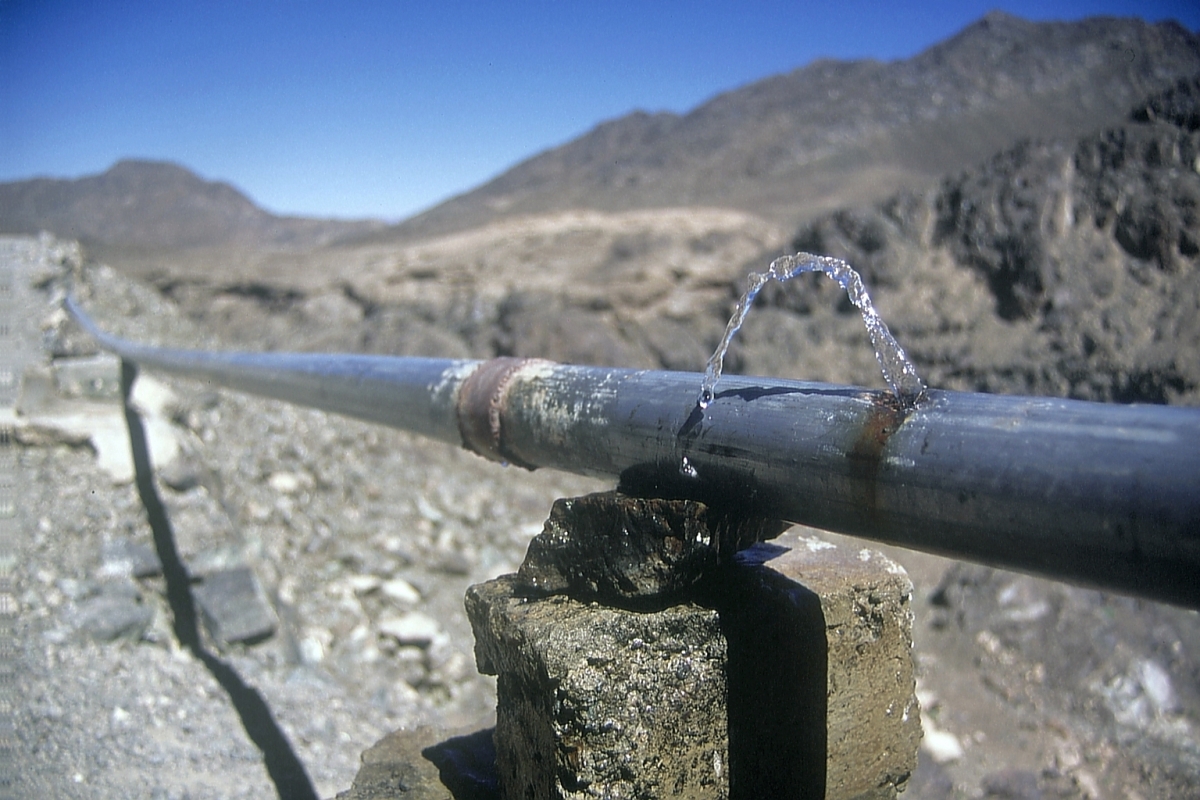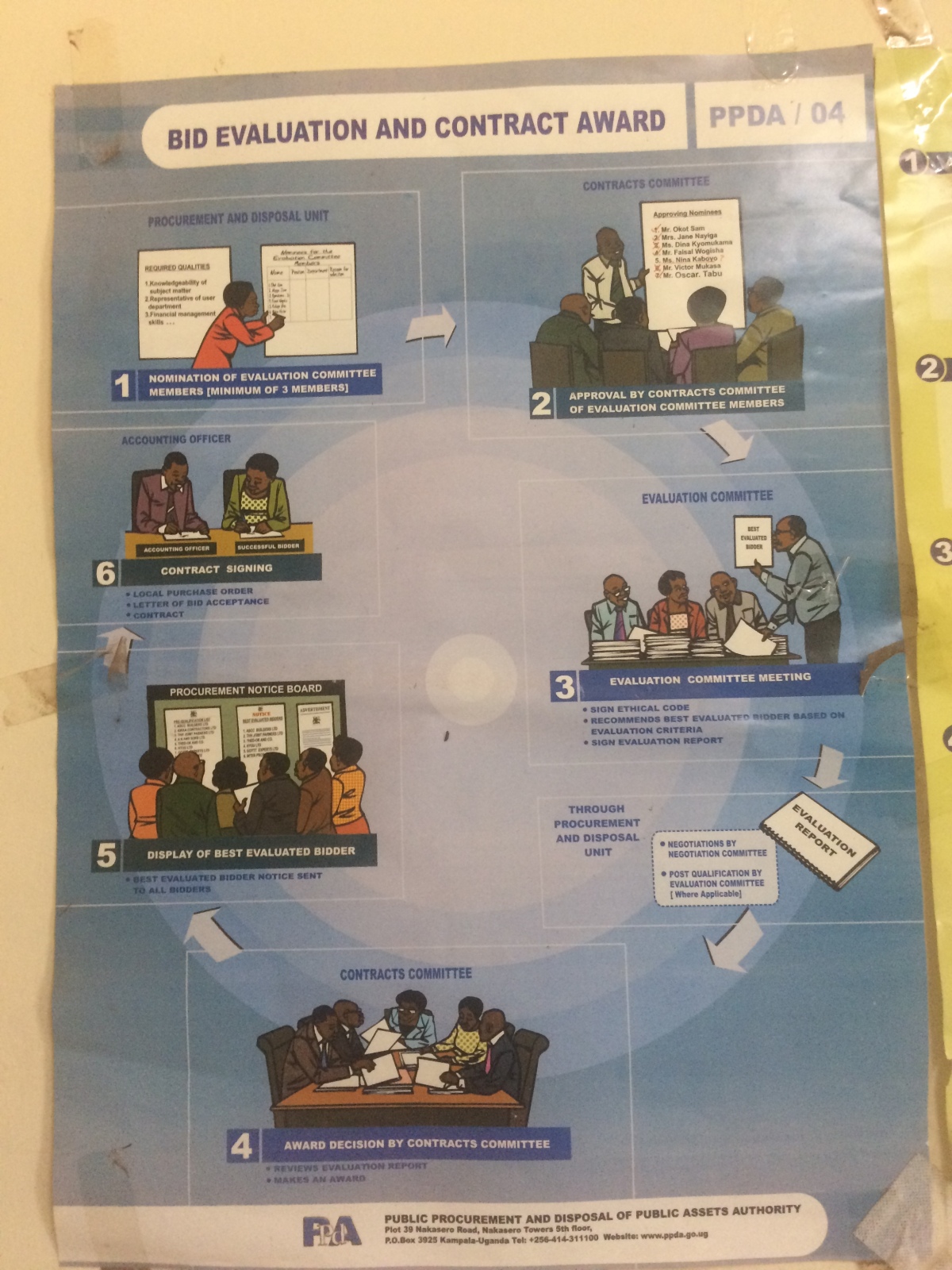This is a guest RWSN blog by Justine Haag and Marian Ryan of the Water Integrity Network.
Integrity risks can be high in professional borehole drilling projects, particularly the risk of corruption, but too often such risks are brushed over or not even acknowledged. Some of these risks have been discussed in previous blog posts. This blog discusses in more detail some of the reasons underlying the importance of addressing corruption in professional borehole drilling.
Corruption contributes to poor delivery of groundwater development projects and is a factor of the failure of 15–30% of newly built wells within one year of construction (UNICEF/Skat 2016).
The good news is that by acknowledging and addressing integrity risks from the earliest project stages, WASH managers in both government and NGOs can take steps to prevent these risks and ensure sustainable infrastructure.
Let’s be real: corruption adds up
Across the world, a great deal of money goes into the drilling of boreholes, At the local level, while it might appear at first glance that the money lost to corruption on small borehole drilling projects in rural or remote locations is limited, even insignificant, the impacts are certainly not. Corruption results not only in wasted money, but, all too often, in sub-standard delivery of projects. This, in turn, results in downstream social, economic and environmental impacts.
From a purely financial perspective, corruption in groundwater development projects may result in inflated costs which undermine the financial sustainability of the project. Equally, corruption in decision-making processes may result in technical choices that ignore community needs, disregarding the local socio-cultural or economic context.
It may also mean that already-limited funds are not used where they are most needed. In many cases corruption means those with power and influence can pay to get improved services, while the most vulnerable are left behind.
When local users don’t see the promised results or services from their duty bearers, mistrust may grow. This can complicate other interventions in the water and sanitation sectors. Poor service delivery may also mean that communities resort to informal systems which may offer lesser guarantees in terms of quality and safety.
Corruption in borehole drilling projects also undermines health and security. Private operators who benefit from favoritism may not be subject to regulations and oversight, resulting in poor-functioning and ultimately decaying, unsustainable infrastructure and water systems.
Ultimately, corruption can threaten food, water, and energy security, greatly impacting the poorest residents.
All project phases are vulnerable to corruption
Corruption can take place at a number of points in the project lifecycle.
The tendering process is well known for posing a high risk of corruption: project owners may demand or receive bribes for awarding bids. They may exclude bids for spurious reasons in order to favour particular bidders. Bidders may organize as cartels, manipulate prices, or block smaller bidders through intimidation. A previous blog post examined how these practices serve to deter experienced professional consultants and drilling contractors from the bidding process, threatening the quality and sustainability of project infrastructure.
But corruption risks exist throughout the project life-cycle:
- Regulatory environment: Corruption can weaken the rules of the tendering process, and weaken sanctions for misconduct. Corruption in licensing can also improperly restrict who can drill and where. Corruption can also result in biases in who water is allocated to.
- Planning: Corruption at the planning level may result in services being provided to certain groups and not to others.
- Financial management: Corruption here can take the shape of falsified accounts in local budgets, or funds which are embezzled or allocated to “ghost” drilling sites or the villages of family or friends.
- Project design: Corruption in project design can take the form of design specifications being rigged to favor certain companies, such as those with higher-capacity rigs.
- Construction: Corruption in the construction phase can result in poor-quality work and/or the use of poor quality materials, the bribing of officials to ignore it, and fraudulent invoicing and documentation.
- Post-construction: the post-construction operation and maintenance phase is critical in the delivery of sustainable and effective services. Corruption in the operation and maintenance of groundwater systems can, for example, include nepotism in the appointment of staff, and the appointment of poorly qualified consultants and contractors. Lack of community input into the well’s operation can allow such corruption to flourish.
Promoting integrity benefits the community – and all stakeholders
It is possible to prevent these dangers from taking hold by building barriers to corruption throughout the project life cycle and by promoting integrity and planning ahead to close gaps where corruption can arise.
Promoting integrity from the start adds value by fostering transparency, accountability, and participation among the project’s stakeholders. Just as corruption has a wide impact, promoting integrity and anti-corruption can support each stakeholder’s efforts across the value chain. When we anticipate and avoid corruption risks, we reduce the likelihood of failure of wells and water points, decaying infrastructure, and disrupted water services.
Where can I start?
Project owners and WASH managers in government institutions or NGOs can take advantage of existing tools to promote integrity and prevent corruption to help ensure successful, professional borehole drilling projects which result in sustainable infrastructure and benefit local communities.
RWSN’s Code of Practice for Cost Effective Boreholes emphasizes the role of greater professionalism in ensuring that projects achieve optimum value for money invested over the long term. The UNICEF Guidance Note on Professional Water Well Drilling is a valuable resource for following professional standards in borehole drilling, including costing, procurement and contracting, siting of wells, and supervision of water well drilling.
Key first steps:
- Establish procedures for key risk areas like procurement and accounting, and make sure procedures are followed by providing training and support to all stakeholders (such as authorities, bidders, regulators, project monitors, utility accounting staff).
- Clarify budgets and responsibilities, and ensure this information is easily available to the public.
- Set up monitoring processes, for tendering, construction, and O&M. Social monitoring, including local users or stakeholders, can be particularly helpful and ensure more independence in the process.
- Ensure institutional responsibility for long-term operations or properly functioning infrastructure over the entire lifecycle.
- Consult water users and water-user associations in decision-making.
More tools:
Integrity pact : The Integrity Pacts help to ensure that contracting parties in a water project abstain from offering, accepting, or demanding bribes; monitor adherence to the contract and compliance with procurement legislation; and enable the placement of sanctions on any parties breaching the pact.
Integrity, Quality, and Compliance for Project Managers : This set of simple project management tools and templates helps improve project management and address common integrity issues from planning through operations, specifically in water-related programmes.
About the authors
Justine Haag coordinates WIN’s West Africa Programme and is in charge of the Capacity Development portfolio, ensuring the mainstreaming of water integrity tools and methodologies in the water sector at global, national, and local levels. She has over 10 years of international experience with water practitioners, working mainly on WASH and IWRM initiatives carried out with multilateral and bilateral aid organizations. She is keen to support participatory processes with a broad range of actors, following her conviction that institutional stakeholders and end users have common values and can reach consensus.
Marian Ryan is a freelance writer and editor specialized in health, international development, and water integrity. She collaborates regularly with the Water Integrity Network to write about and promote integrity Tools.
Photo credit: Joost Butenop, WIN photo competition 2009. Uncontrolled diversion of water from surrounding villages, Western Pakistan.



